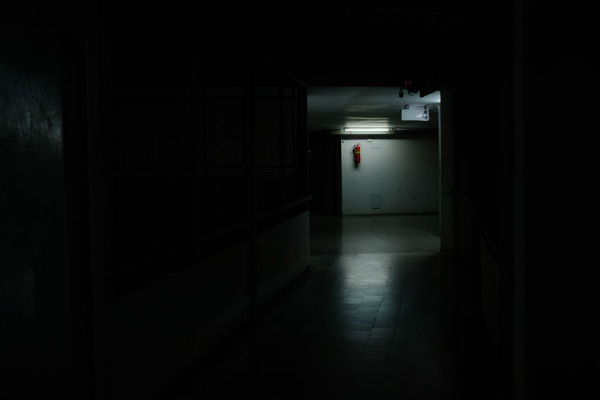There’s a saying that sharing is caring. But when it comes to shared maintenance and property responsibilities, you can’t always guarantee that everyone is on the same page. That’s where the Strata Management Act 2013 comes in.
Let’s be honest, if you’ve got a beautiful apartment unit that you work hard to keep looking good, you want the complex it’s located in to look good too.
But in a big development with multiple owners spread across a large area, ensuring that everyone contributes to its upkeep can become a problem really fast.
Luckily for people living in strata developments such as condominium or apartment complexes, the Strata Management Act 2013 provides a framework to ensure everyone is treated fairly. Hold onto your hats people, this one gets technical!
What Is A Strata Property?
It’s always best to start with good foundations. That’s certainly true if you live in a high-rise building! So what is a strata property?
The use of ‘strata’ as a legal term was introduced in Malaysia with the Strata Title Act 1985. It sets out the definition of strata property as a single property within a larger integrated development that shares common facilities.
Basically that’s a condo in a larger complex, an apartment in a big development, and even some landed properties where the land is part of a shared development with communal infrastructure.
It means that the property itself forms an individual unit within a larger parcel of land that boasts shared areas.
What is Strata Law?
Strata Law in Malaysia governs strata properties, with the main legislation surrounding it being the Strata Management Act (SMA) 2013.
Since strata properties involve many parties from the developer to the owners to the various management bodies, laws are put in place to protect all respective parties.
It’s also important that the rules are laid clear so that when hiccups happen, no one is left confused as to who is at fault or how to proceed from there.
What Is Strata Management Act 2013?
The Strata Management Act 2013 was regulation introduced in 2013 in order to govern the maintenance and management of stratified residential developments, such as:
- Condominiums
- Apartments
- Townhouses
- Landed properties in a shared development
This act aims to consolidate the rights and responsibilities of residents, landowners, and developers to ensure suitable, efficient, and ongoing management of these properties.
In a very simple sense, that means providing the regulation to ensure everyone contributes to maintaining a better environment to live. That’s the kind of legislation that gets things done!
What are the Strata Management (Maintenance and Management) Regulations 2015?
The Strata Management (Maintenance and Management) Regulations or SMR 2015 are a set of regulations under the Strata Management Act 2013.
When it comes to strata properties, decisions can be messy with so many people involved. Together with the SMA 2013, the SMR 2015 helps to more comprehensively address the many, many concerns surrounding the maintenance and management of strata properties.
Among other things, it lays out the regulations around the Joint Management Committee (JMC), Subsidiary Management Committee (SMC), Joint Management Body (JMB) and Management Corporation (MC).
Don’t worry about all the acronyms – we’ll get to that later!
Basically, the SMR 2015 answers questions such as:
- What happens when there’s inter-floor leakage?
- When does the developer hand over management to the JMB?
- When is the first general meeting to be held?
What are the Strata Management (Compounding of Offences) Regulations 2019?
We’ve touched on the SMA 2013 and the SMR 2015, now let’s get to know another set of regulations.
The Strata Management (Compounding of Offences) Regulations 2019 allows the Commissioner of Buildings (COB) to compound offences committed by strata owners as well as developers.
Just to be clear, to compound an offence means to settle the charge with payment.
So rather than going through the hassle of bringing the case to court, the parties come to an agreement to settle it with money instead!
The Strata Management (Compounding of Offences) Regulations 2019 lays forth which offences can be compounded, and which can’t.
What Role Does Common Property Play?
Common property is the shared area of land maintained and managed as part of an integrated development.

That’s things like your shared gym, playgrounds, or rooftop infinity pool (some lucky people!). There are two types to be aware of – common property and limited common property.
Common property refers to all those areas that do not belong to a single owner, but are instead shared between all property owners. That’s the gym, yoga deck, etc as mentioned earlier.
Limited common property refers to common areas accessed by a limited number of owners in a development. That’s things like an infinity pool where only penthouse owners are allowed access, or a common garden area shared between certain landed properties in a gated community.
How Is The Strata Management Act 2013 Enforced?
Of course, all the most effective regulation has provisions for telling people off if they aren’t cooperating. That job is down to the Commission of Buildings (COB).
The COB is an independent body responsible for overseeing, administering, and enforcing the duties and obligations laid out in the Strata Management Act.
They have the right to investigate potential breaches in the act, and in the event that a breach has been committed, they can penalise the individuals or organisations responsible.
In the event of a complaint or dispute, a Strata Management Tribunal (SMT) is established as per the terms of the Strata Management Act.
This is a way for claimants to seek legal redress for issues that fall within the act, without the need to go to court. That provides a faster, cheaper route to resolving complaints.
The SMT also has the power to impose fines of up to RM250,000 or imprisonment of up to 3 years, or BOTH.
Who are the management bodies under SMA?
Management of buildings under the Strata Management Act falls under the responsibility of management bodies known as the Joint Management Body (JMB) or Management Corporation (MC).
These bodies are a requirement under the Act, and are designed to provide a centralised body responsible for, and empowered to, oversee and organise maintenance on a site.
In simpler terms, it means that if someone trips and accidentally smashes the mirror in the gym, or you just need to repair the lights in a corridor, these folks should have it covered.
When a new property is finished, these duties originally fall to the developer under what’s known as the developer management period.
Once vacant possession (VC) is received, and the new owners move into their homes, a JMB is formed. The JMB is comprised of the developer, as well as purchasers of building parcels.
Then, it’s time for the Management Corporation, which takes over all duties and liabilities originally held by the JMB.
The MC is established at the point the developer successfully completes subdivision of the building and relevant strata titles have been issued for individual owners.
What Are Responsible Parties Actually Responsible For?
It’s all well and good saying the JMB or MC are responsible for lots of things, but what are all those things they’re actually responsible for?
- Maintain and manage common shared areas
- Determine, bill, and enforce collection of management fees
- Ensure the property is appropriately insured and protected
- Comply with building regulations and notices enforced by local authorities
- Maintain appropriate register of all owners
- Ensure financial transparency of maintenance accounts
- Enforce relevant by-laws or rules
Who are the JMC and SMC?
As anyone who has ever been in a meeting that involves too many people will know, lots of voices don’t always mean that things get done!
That’s why a Joint Management Committee (JMC) or Subsidiary Management Committee (SMC) often comes into play.
The JMC is a committee comprised of no less than 3 and no more than 14 members, and is responsible for the day-to-day administration of management and repairs required for a development.
The SMC is essentially a body or company, which has its maintenance duties designated for only a specific area of a development.
This can be useful when developments boast those limited common property areas we mentioned earlier.
An SMC is mainly formed if the development is too large and difficult for the MC to handle alone (help is here!).
So for example, if your development includes a large residential area and a separate commercial area, you might have a unique SMC with specific duties for each separate areas.
Eligibility to join JMC |
|
Aged over 21 years
|
|
Property owner in the development
|
|
Have no conviction for crimes of fraud or dishonesty
|
|
Up to date with all maintenance fees and payments
|
|
Not declared bankrupt
|
It’s important to note that while the JMC and SMC might be responsible for the important administrative needs, the JMB or MC is the party ultimately legally responsible for ensuring compliance with the Act.
That’s a lot of organisations, a lot of acronyms, and a whole lot of responsibility! Hopefully you’re not too confused. So let’s look at how all these impact you, and what that means in practice.
What The Strata Management Act 2013 Means To Owners
Aside from giving you peace of mind to know your corridors will be clean, your CCTVs work, and all the other bits of property function properly, the Strata Management Act 2013 provides a rigid structure and enforceable system for things like paying the fees and relevant funds:
- Sinking fund – The sinking fund is a shared pot of money kept aside for a ‘rainy day’. And by ‘rainy day’, read: unexpected and large maintenance expense. That’s something like a tree falling through the roof of your gym. The sinking fund cost is charged at 10% of the total cost of maintenance fees.
- Maintenance fees – Maintenance fees are for the predictable everyday payments like cleaning and security. How much you pay will depend on the overall costs for running the property, the shared facilities and access points, and the total floor area of your apartment.
It’s hard to argue against the need for fees like the above. And while we don’t always like having to pay them, it’s important to know that when you fork out, everyone else is paying their fair share too.
That means the financial burden of being a good owner won’t fall unfairly on you alone!
Who Pays For Empty Properties?
If you’ve just moved into an awesome new apartment, you might be wondering – who is paying maintenance fees for all the properties around you?
Don’t worry, that’s covered too!
Maintenance fees for empty units are the responsibility of the developer. So you won’t be paying for a whole high-rise building if you’re the first one to move in!
What Happens If You Don’t Pay The Maintenance Fees?
Sometimes people don’t always agree about money. So what do you do if you disagree with your maintenance fees?
The first step should always be to discuss it with the JMB to raise your concerns. You’re also entitled to view the accounts of the JMB to see where all the money is going.
They can charge a nominal RM50 for this viewing, but it’ll also help you decide whether what you’re paying for is fair. If you don’t pay it however, you might get stuck with the following penalties:
- Interest charges: The management can legally charge interest at a rate of no more than 10% per annum for any common charges outstanding, within 14 days of request for payment.
- Lose voting rights: As an owner, you have certain voting rights under the JMB, but you lose those rights if you fail to pay the bills.
- Lose public area access: Like going to the shared gym? Not if you don’t pay the fees! Isn’t it good to know that anyone else who fails to pay doesn’t get to keep using all the shared facilities?
- Criminal charges: In the most extreme circumstances, you can be charged for failure to pay maintenance charges. The maximum penalty is RM5,000 fine or up to 3 years in jail! Ouch.
- Seizure of assets: The Act lays out the right to seize movable assets in order to recoup moneys owed for overdue fees. Say goodbye to your 50” flatscreen TV.
Is there any update for Strata Management in 2021?
With COVID-19 still on our heels, it can be a little more tricky for the management bodies to keep operations running smoothly.
They need to be wary of the relevant SOP when organising the Annual General Meeting (AGM) and other meetings, or even make the switch to virtual!
The latest SOPs relevant to strata properties in particular can be found here (pages 4 till 14).
When all is said and done, the Strata Management Act 2013 is about ensuring a better environment for you to live in.
That means whether you’re in the top floor penthouse or the first floor affordable unit, you can enjoy a clean, safe development to call home. The legislation might be complicated, but the end result is beautifully simple.
Are you looking to move to the top? Now that you know more about the Strata Management Act, it’s time to understand a little bit more about living in a high-rise. Here’s 13 Important Things To Take Note Of When Choosing A High-Rise Unit.
Disclaimer: The information is provided for general information only. PropertyGuru International (Malaysia) Sdn Bhd makes no representations or warranties in relation to the information, including but not limited to any representation or warranty as to the fitness for any particular purpose of the information to the fullest extent permitted by law. While every effort has been made to ensure that the information provided in this article is accurate, reliable, and complete as of the time of writing, the information provided in this article should not be relied upon to make any financial, investment, real estate or legal decisions. Additionally, the information should not substitute advice from a trained professional who can take into account your personal facts and circumstances, and we accept no liability if you use the information to form decisions.









